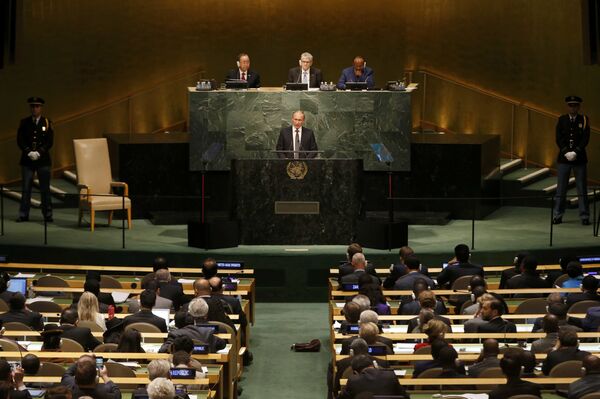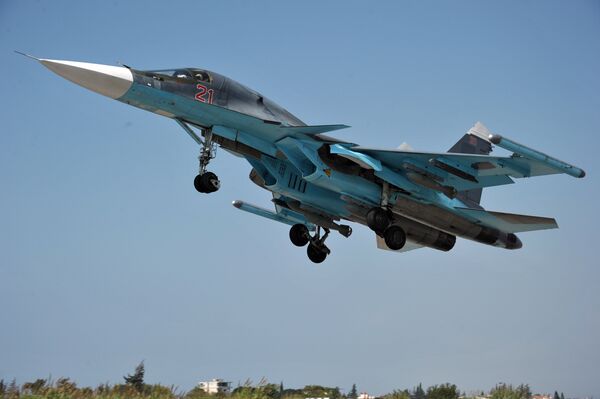Russia's limited military engagement in Syria is a testament to what could have been achieved if Washington had decided to join forces with Moscow and fight terrorist groups such as Daesh and al-Nusra Front together.
"A minimalistic and selective use of our military force led Syria out of a deadlock not in a year, but in the first three-four months, turned the tide of war and drastically improved Russia's standing not only in the Middle East, but throughout the world," he observed.
All this time, Russian leaders have repeatedly called on other countries, particularly the United States, to join forces and defeat what the Kremlin perceives as one of the greatest global challenges facing every country: international terrorism.

"What we propose is to join efforts to address the challenges that all of us are facing and create a genuinely broad international coalition against terrorism," he told the UN General Assembly in 2015. "Similar to the anti-Hitler coalition, it could unite a broad range of parties willing to stand firm against those who, just like the Nazis, sow evil and hatred of humankind."
Putin warned that some might be tempted to use this proposal as a pretext for accusing Russia of "its growing ambitions," as if they themselves have no ambitions. "It is not about Russia's ambitions, dear colleagues, but about the recognition of the fact that we can no longer tolerate the current state of affairs in the world."
President Obama warned that Russia was "just going" to end up "stuck in a quagmire" and its anti-Daesh operation "won't work" less than a week after the Russian Aerospace Forces carried out their first mission in Syria.
"They have also miscalculated the political implications of Russia displaying its military might," Kosyrev said. "They failed to predict that 'isolated' Russia would find itself at the heart of global politics and everyone would need Moscow. They did not foresee that the Russian economy would go through a hard time and come out healthier."
Kosyrev further said that what the US and its allies have been left with is failure.
"We urged them to form a coalition; we offered cooperation and joint campaigns," he noted. Had they said yes, "today we would have celebrated a common victory."





